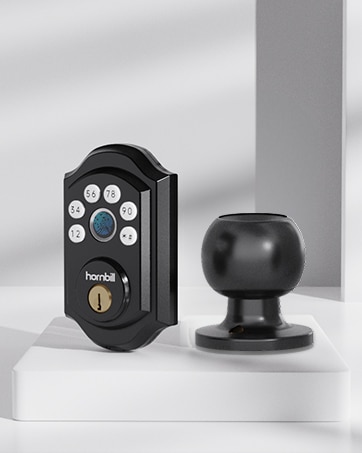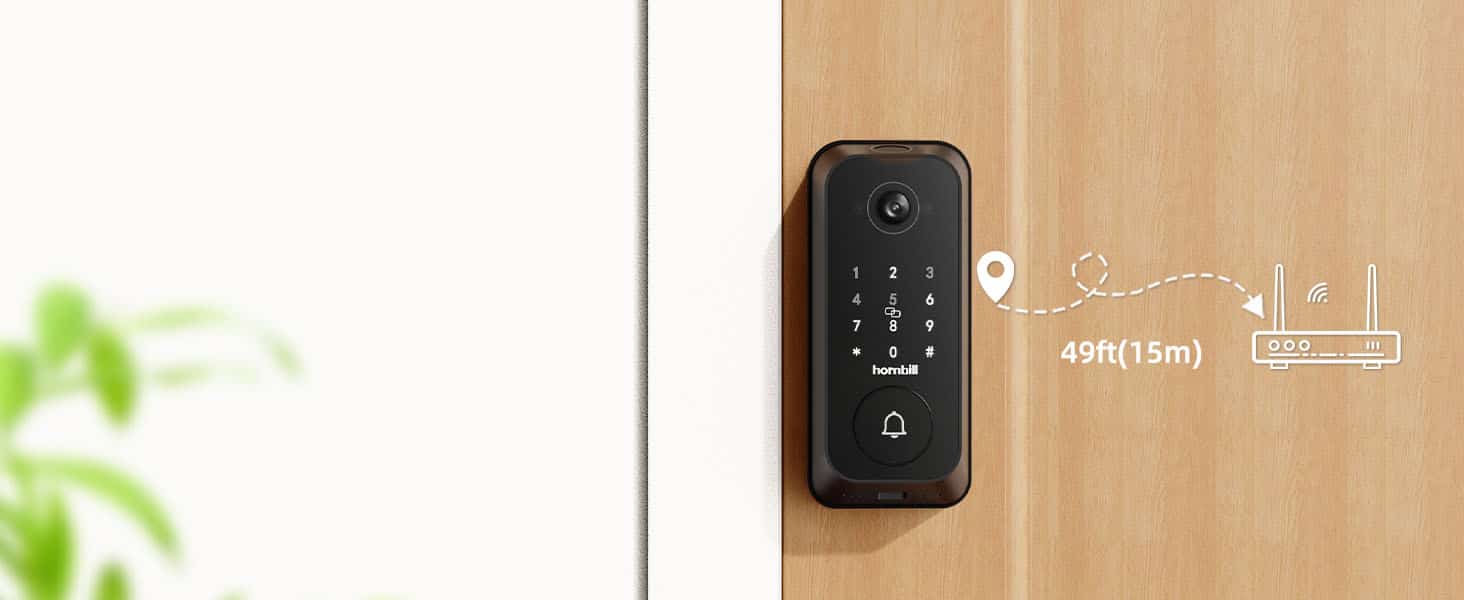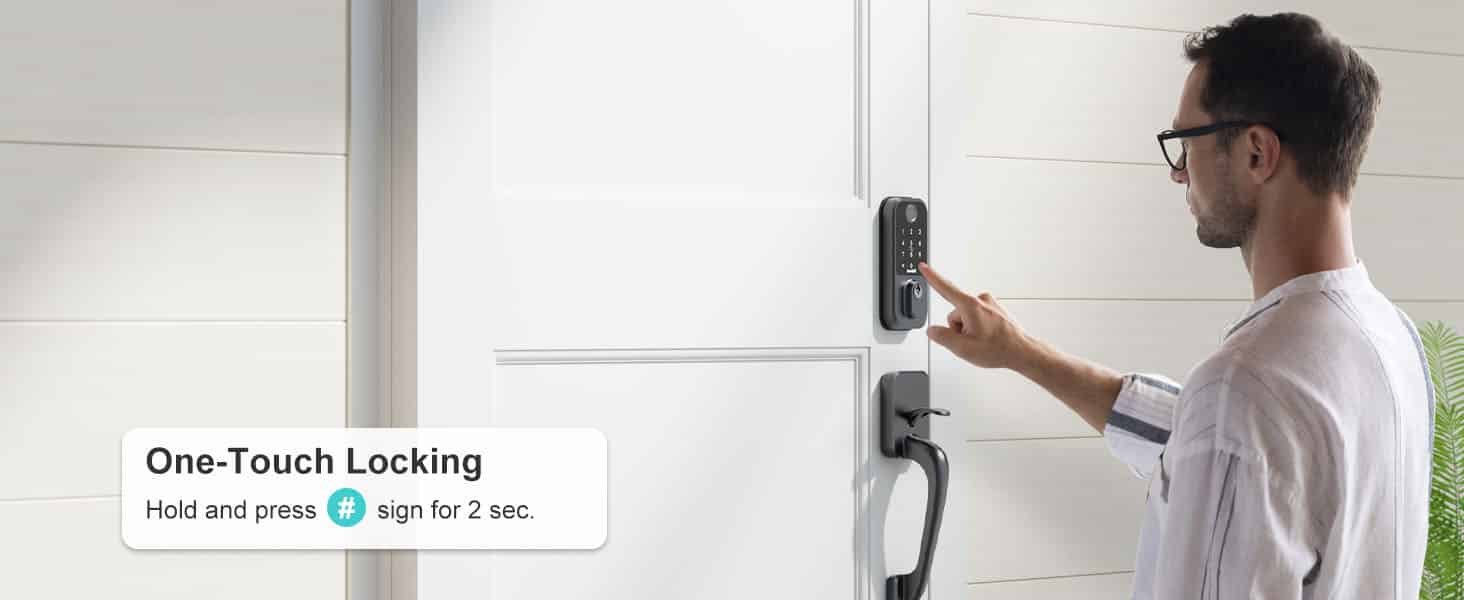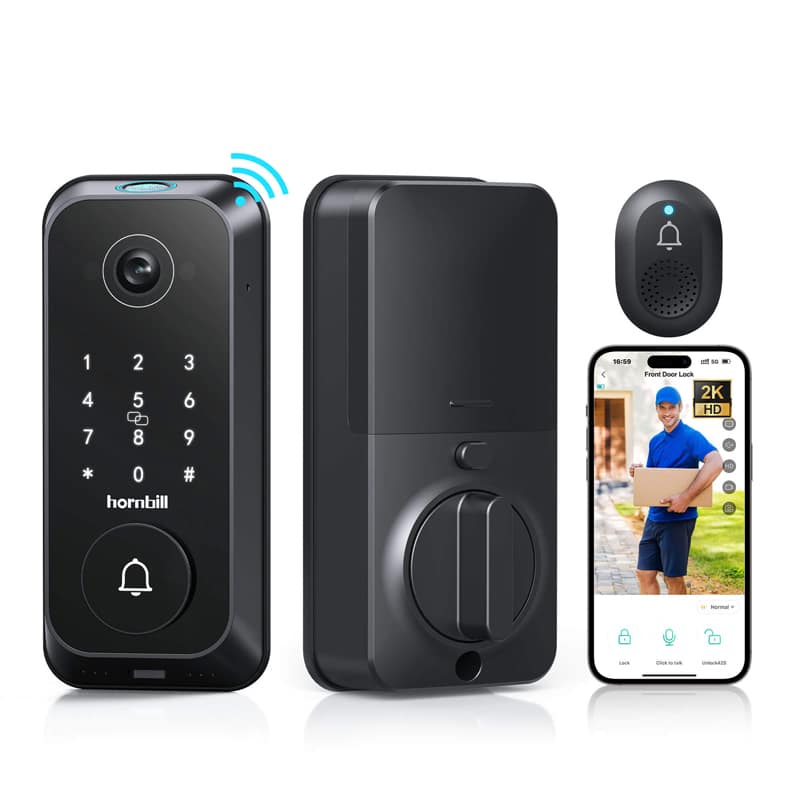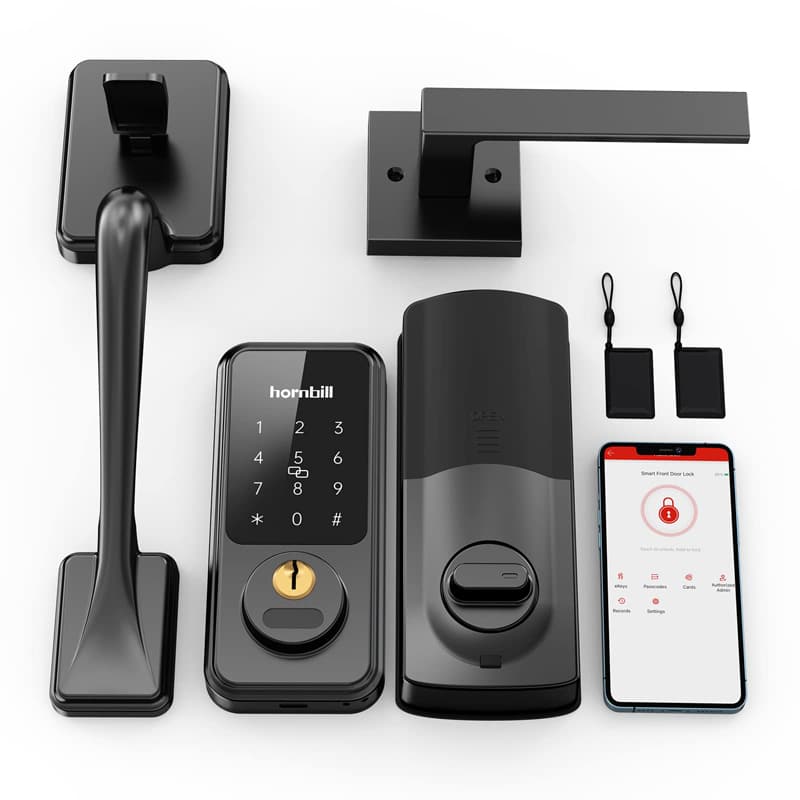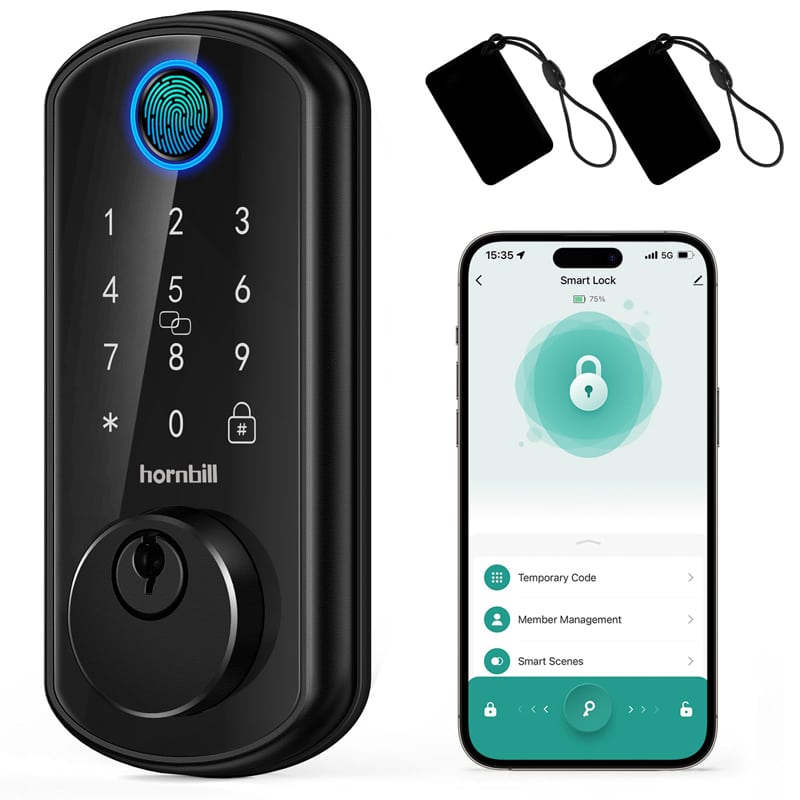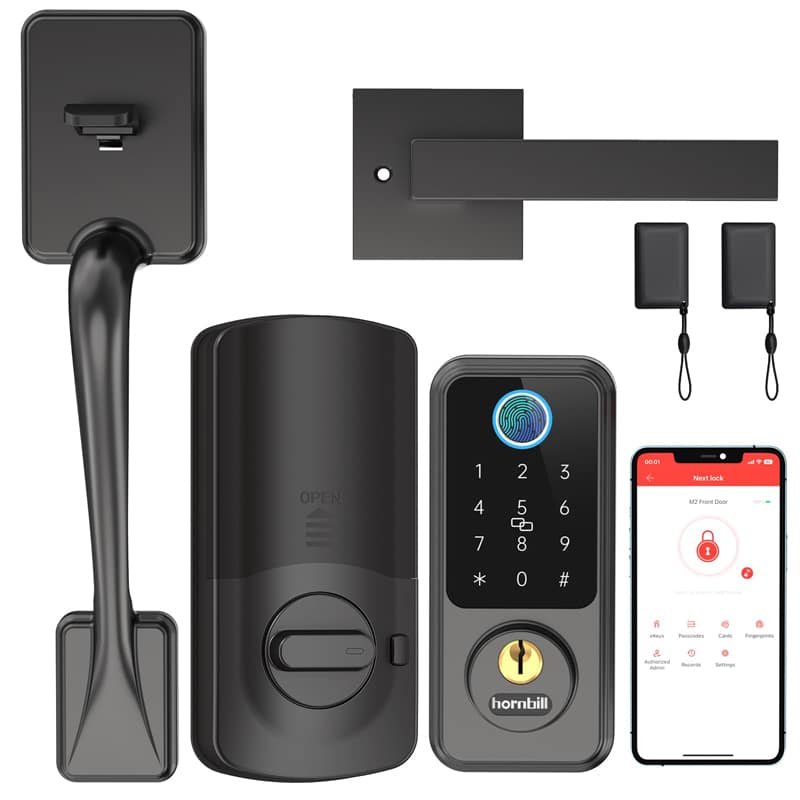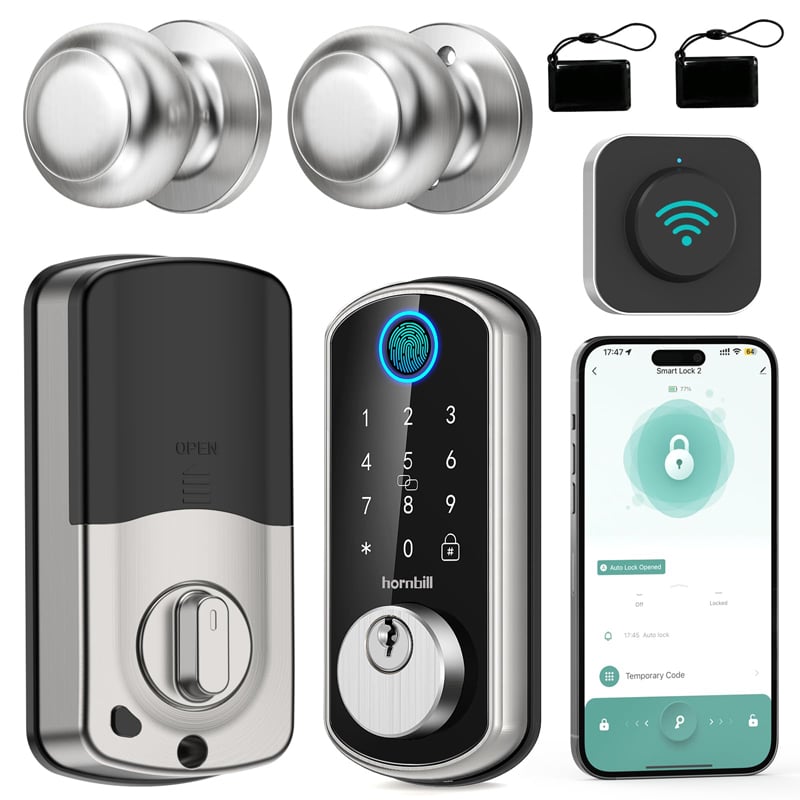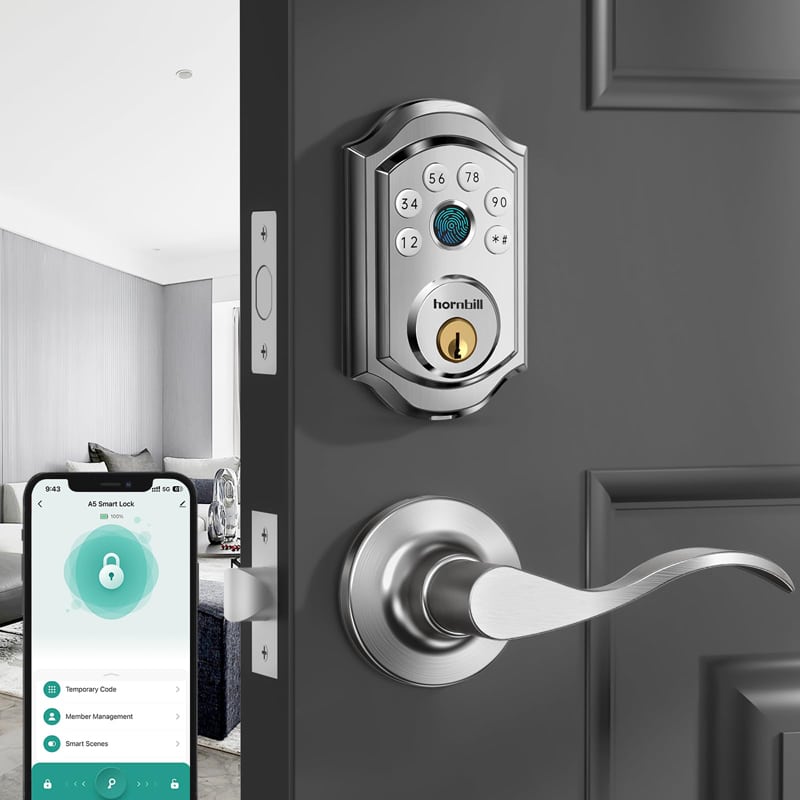Security systems evolve parallel to technology, transitioning from manual locks to digital platforms. An outstanding instance of this development is the Bluetooth entry door lock, known for its steadfast commitment to securing personal user information. Herein, we underline how innovative this system truly is, focusing on protecting essential user data.
The cornerstone of personal security in modern door locks is safeguarding the user’s biometric data, accentuated in the Hornbill Fingerprint Bluetooth Door Lock. It employs a unique local data storage approach, holding fingerprint information within the device only, rather than on expendable cloud storage. This approach significantly diminishes the risk of information leakage via the internet, as the data is unattainable from network avenues.
Once registered on the lock system, the fingerprint data undergoes conversion into an encrypted code, subsequently stored in the lock’s secure memory. This encrypted data is utilized for authentication upon subsequent access attempts, making it virtually impossible for unsolicited individuals to manipulate or duplicate the fingerprints to gain unauthorized entry.
It is essential to emphasize that the Hornbill design integrates advanced encryption methodologies. Any data communication, be it with the accompanying smart app or between lock components, is fully encrypted. By doing so, Hornbill fortifies the information against any potential eavesdropping, interception, or alteration, thus maintaining the integrity of user’s information.
Moreover, while Bluetooth security door locks may raise concerns about Bluetooth hacking or hijacking, Hornbill addresses these threats successfully. Its door lock system incorporates Bluetooth Low Energy (BLE) technology, acknowledged for its advanced security features, such as pairing encryption and privacy protection, countering conventional Bluetooth-related vulnerabilities effectively.
Notably, the user-friendly smart app that pairs with the Hornbill door lock further confirms their commitment to user information security. The app requires unique authentication to access, ensuring only the rightful owner has control. The extra layer of protection comes in handy, especially if the user’s smartphone is lost or stolen.
In instances of sharing temporary access, rather than sharing personal access codes or fingerprint data, users can issue temporary electronic keys via the app. These digital keys are trackable and can be rendered obsolete anytime, providing a secure way of temporarily allowing others access without revealing personal security information.
While placing cyber-security at the forefront, Hornbill does not undermine physical security. The Hornbill Bluetooth-enabled fingerprint and key fob smart lock structure is robust and resilient, making forced entry attempts futile. Furthermore, the fingerprint scanner features a protective layer, safeguarding the sensor and saving fingerprint data from any physical tampering attempts.
In hindsight, the Hornbill Fingerprint Bluetooth Door Lock provides a wholesome approach to protecting user information. It ingeniously combines traditional security mechanics with revolutionary digital solutions, setting a robust, near-infallible security standard. Plus, proactive measures such as regular firmware updates ensure the system stays ahead of evolving security threats, maintaining its reliability and user trust.
In conclusion, the secure handling of personal information is a shared commitment between users and manufacturers in this digital era. By deploying local storage, advanced encryption, and multi-factor authentication, Hornbill redefines security parameters, ensuring users can enjoy the convenience of keyless access without compromising their personal information’s safety. As it continues to pioneer improvements in door locking technology, the Hornbill Fingerprint’s best electronic home door locks stand as a testament to prioritized user security in our interconnected, digital-driven world.


